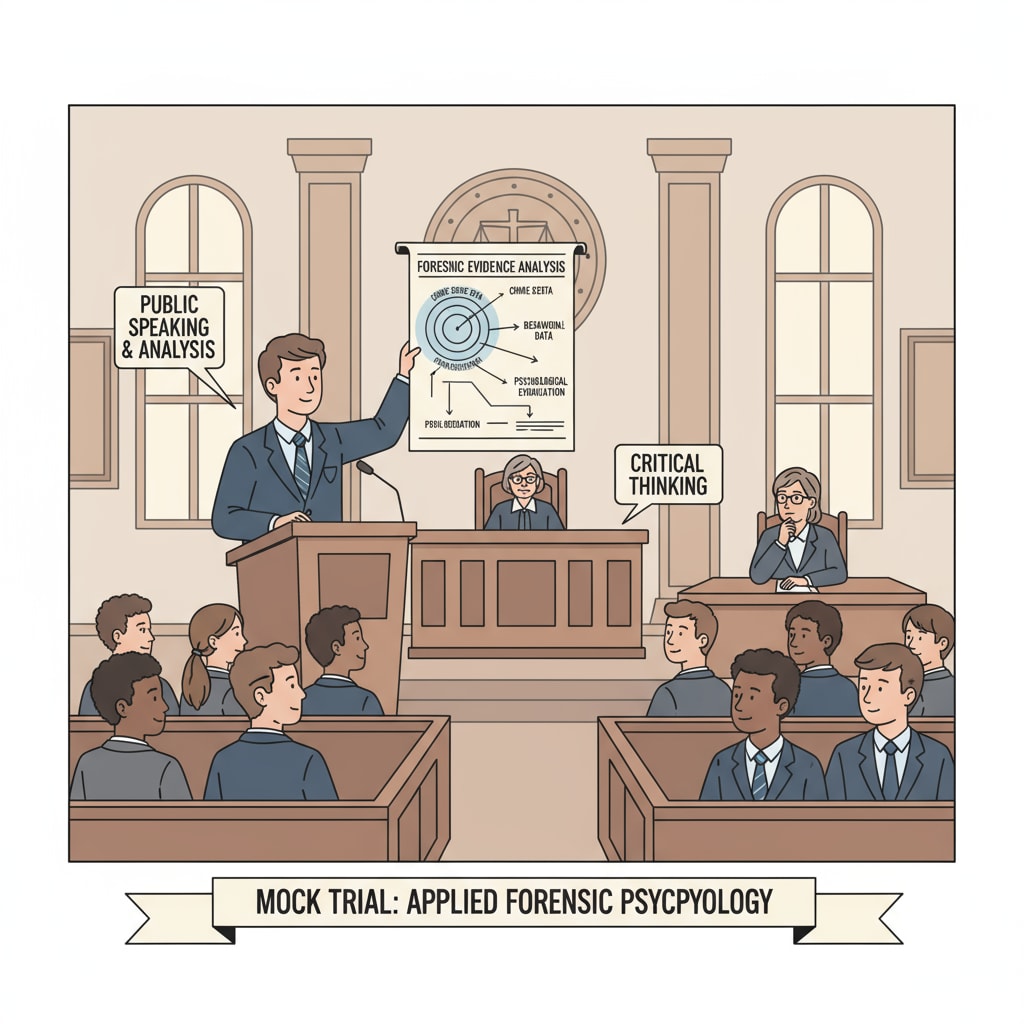Forensic psychology, university pathways, and career planning are crucial aspects for students interested in this unique field. If you’re a K12 student with dreams of becoming a forensic psychologist, this article will provide you with valuable insights on how to prepare for this exciting career.

Middle School: Laying the Foundation
During middle school, it’s essential to start building a solid foundation. Focus on core subjects like English, mathematics, and science. English helps improve communication skills, which are vital for writing reports and testifying in court. Mathematics enhances logical thinking, while science, especially biology and chemistry, provides a basic understanding of the human body and natural processes relevant to forensic work. For example, understanding chemical reactions can be useful in analyzing crime scene evidence. In addition, taking courses in social studies, such as history and geography, broadens your perspective and understanding of human behavior in different contexts.
High School: Deepening Your Knowledge
In high school, you can start to specialize further. Consider taking advanced placement (AP) courses in psychology, biology, and criminal justice. AP psychology introduces you to the fundamental concepts of human behavior, which are at the heart of forensic psychology. Biology courses delve deeper into the human body, and criminal justice courses expose you to the legal system and crime scene investigation. You can also participate in extracurricular activities like debate clubs or mock trial teams. These activities not only improve your public speaking and critical thinking skills but also give you a taste of the legal and forensic environment. For instance, being part of a mock trial team allows you to experience how evidence is presented and cross-examined in a court setting.

As you approach your senior year of high school, start researching universities that offer strong programs in forensic psychology or related fields. Look for institutions with faculty members who are actively involved in research and have connections in the forensic community. You can find this information on university websites and by reading reviews on platforms like Niche.
University: Choosing the Right Major
When it comes to university, there are several majors that can serve as a stepping stone to a career in forensic psychology. A major in psychology is a common choice. It provides a comprehensive understanding of human behavior, cognitive processes, and psychological disorders. Many universities also offer specialized forensic psychology courses as part of their psychology curriculum. Another option is a major in criminal justice. This major focuses on the legal system, law enforcement, and criminal behavior. It gives you insights into the criminal justice process, which is closely intertwined with forensic psychology. Some students also choose to double major in psychology and criminal justice to gain a more in-depth understanding of both fields. You can learn more about these majors on Britannica’s page on forensic psychology.
In addition to your major, consider taking minors or elective courses in areas such as sociology, anthropology, and forensic science. Sociology helps you understand social structures and group behavior, anthropology provides insights into different cultures and human evolution, and forensic science equips you with the technical skills needed to analyze crime scene evidence.
Readability guidance: As you can see, planning your educational journey from K12 to university is crucial for a career in forensic psychology. By following these steps, you can build a strong foundation and increase your chances of success in this fascinating field. Remember to stay curious, keep learning, and actively seek out opportunities to gain practical experience.


